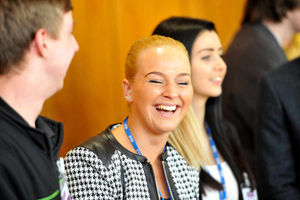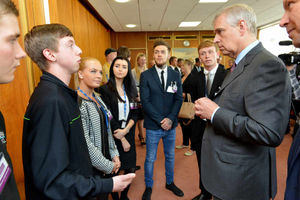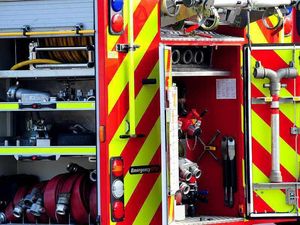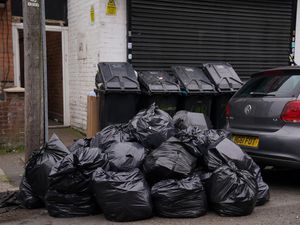Parents key to apprentice success, says Prince Andrew
Prince Andrew was adamant as to who the most important people are when it comes to getting the young into paid apprenticeships - their parents.
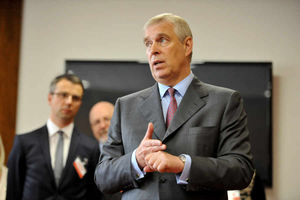
After meeting apprentices and business leaders, he emphasised the key role that parents must play in promoting the value of apprenticeships and said it could even be the only chance they have to turn around their children's lives.
"The most important people are the parents of young people. They need to be engaged and recognise that the apprenticeship path might make a difference," he said passionately.
He leant forward and authoritatively added: "It is their young people and their children and it could be the only thing they can do to change their lives - to give them a good education and prepare them for life after school.
"The parents are very important."
His Royal Highness visited the Express & Star yesterday to back the Ladder for the Black Country campaign which has already created 100 new opportunities for unemployed young people in just seven days.
The campaign has seen the Express & Star combine with a group of expert partners to tackle the Black Country's high levels of unemployment, which is the worst in the country.
The Duke of York is an ardent supporter of apprenticeships, believing they hold the key for prosperous livelihoods and a prosperous country.
He has agreed to be the patron of the campaign and yesterday was told of the rapid progress the scheme is making.
Asked why he was giving his Royal seal of approval to the Ladder for the Black Country, he said: "For the very simple reason that young people need to be encouraged to think about apprenticeships, and businesses actually need to be encouraged whether or not an apprentice will make a difference to their business."
He said that there were still battles to overcome from would-be apprentices and would-be employers, including preconceptions that apprenticeships are a route for those who do not do well at school.
But he said the Ladder for the Black Country will make it easier for businesses to recruit quality apprentices, and help the image of apprenticeships.
"From all the stories I have heard, businesses are worried about taking apprentices on because there is a lot of risk involved and the Ladder is there to help mitigate some of those risks but also succession planning for businesses which is very important.
"As far as young people are concerned it is about making sure there is no loss or lack of respect from peers or anybody else because they have chosen an apprenticeship route."
During his visit he met with current apprentices - including the five journalism apprentices working at the Express & Star - as well as business leaders and those behind the campaign.
His Royal Highness also drew comparisons with his own decision not to go to university but to opt for a career with the Royal Navy.
The Duke famously trained as a helicopter pilot with the Fleet Air Arm and saw active service during the Falkland War.
He said he never regretted his decision and had turned down other opportunities to go to university because of busy commitments as a member of the Royal Family.
"I had never thought about it like that but yes, when I decided not to go to university, I decided to join the Royal Navy immediately and my flying training was an apprenticeship in another form because it was a skill. Actually, it is quite an expensive skill to learn.
"I enjoyed it, and I never missed not going to university.
"There have been a number of opportunities to go to university since but unfortunately because of the shoes I walk in I haven't the time to do it because I am doing things like this which is encouraging other people.
"But though I did not realise it at the time, it was very much like serving an apprenticeship."
The Prince has been supporting apprenticeships up and down the country - and was also patron of the Ladder for London campaign which helped create more than 1,000 apprenticeships in the capital.
High Royal Highness reflected on the impact of his intervention but was modest when it came to assessing the reach of its impact.
"If it changes one person's life it has made a difference," he said.
"If a person acquires the skills he or she would not normally have had and is on a career path that is not only going to make them prosperous but the country too - that is fine by me."

